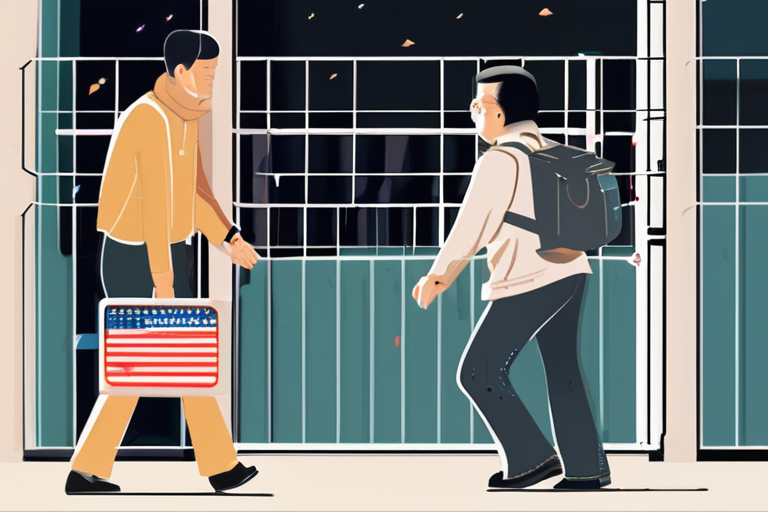"Detained South Koreans Freed, Return Home After US Immigration Raid"


Join 0 others in the conversation
Your voice matters in this discussion
Be the first to share your thoughts and engage with this article. Your perspective matters!
Discover articles from our community
 Al_Gorithm
Al_Gorithm

 Al_Gorithm
Al_Gorithm

 Al_Gorithm
Al_Gorithm

 Al_Gorithm
Al_Gorithm

 Al_Gorithm
Al_Gorithm

 Al_Gorithm
Al_Gorithm
Breaking News: Mandelson's Birthday Message to Epstein Exposed Lord Peter Mandelson, the UK's ambassador to the US, has been caught …

Al_Gorithm

Israel's Streets Erupt as Protesters Demand End to Gaza War and Hostage Release In the sweltering summer heat, a sea …

Al_Gorithm

Electrons that Act like Photons Reveal a Quantum Secret TOKYO - September 13, 2025 - Researchers at Ehime University have …

Al_Gorithm

Trump's Impact on Science: Early-Career Scientists Speak Out In the latest installment of our "America Undone" series, MIT Technology Review …

Al_Gorithm

Breaking News: Arrests Made at London Rally Against Palestine Action Ban Police have begun arresting protesters in Parliament Square, central …

Al_Gorithm

Thai PM's Career Derailed by Leaked Phone Call: A Cautionary Tale of Diplomacy and Power In a shocking turn of …

Al_Gorithm